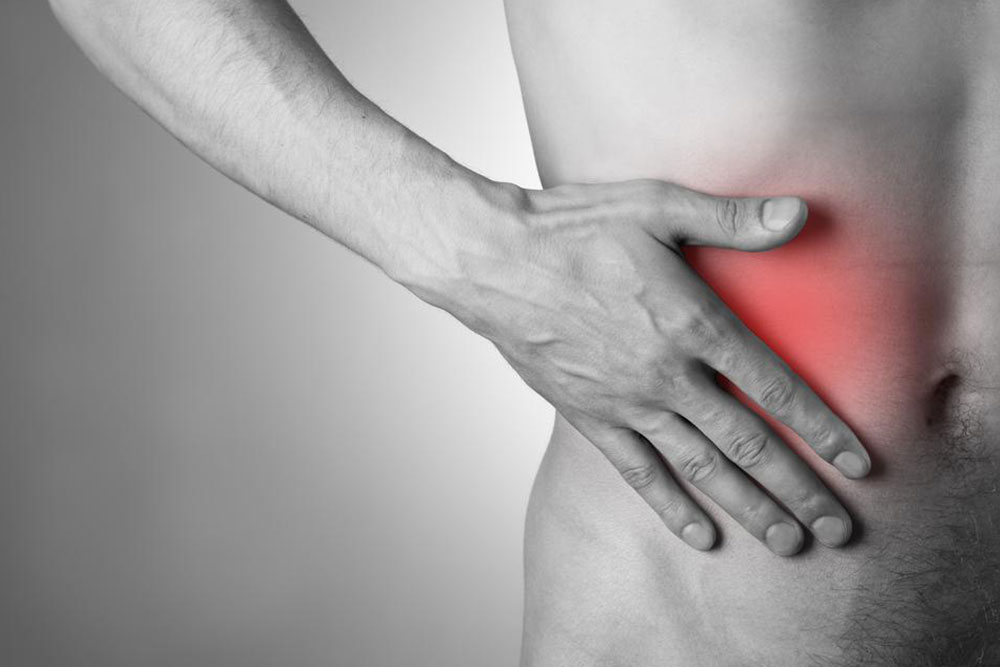Comprehensive Guide to Detecting Early Symptoms of Appendicitis and When to Seek Medical Help
This comprehensive guide details the early signs and symptoms of appendicitis, emphasizing the importance of prompt diagnosis. Recognizing persistent abdominal pain, fever, nausea, and bowel changes can help prevent serious complications like rupture. The article explains the causes, key indicators, and when to seek emergency care, providing valuable insights for quick action and effective treatment. Early detection is crucial to avoid life-threatening outcomes and ensure a swift recovery from appendicitis.

Understanding Appendicitis: Recognizing the Early Warning Signs and Symptoms
Appendicitis is an acute medical condition characterized by inflammation of the appendix, a small, tube-shaped organ located in the lower right quadrant of the abdomen. Despite its mysterious origin, the appendix is widely considered a vestigial organ, meaning it does not perform a vital function for the human body. However, when it becomes inflamed or infected, urgent medical attention is required to prevent serious complications such as rupture, peritonitis, or abscess formation.
Understanding the early signs and symptoms of appendicitis is crucial for prompt diagnosis and treatment. If left untreated, the inflamed appendix can burst, spilling infectious materials into the abdominal cavity, which can be life-threatening. Therefore, recognizing the initial discomfort and subtle clues can significantly impact outcomes.
What Causes Appendicitis?
Appendicitis generally occurs due to the obstruction of the appendiceal lumen, which can be caused by various factors such as hardened fecal matter (fecalith), lymphoid hyperplasia, parasitic infections, or foreign bodies. When blocked, bacteria within the appendix multiply rapidly, leading to inflammation, swelling, and infection. Over time, if the condition continues unaddressed, pressure increases within the appendix, causing it to become painful and swollen. If ignored, the wall of the appendix can weaken, culminating in rupture and spreading infection into the abdomen.
Key Early Symptoms of Appendicitis to Watch For
Early detection hinges on recognizing the typical symptoms of appendicitis. While symptoms can vary between individuals, certain signs are consistently associated with the condition:
1. Persistent Middle or Right-Side Abdomen Pain
The hallmark symptom of appendicitis is pain starting around the umbilical area (navel) and migrating to the right lower abdomen. In the initial stages, patients may experience dull or cramping pain near the belly button, which then intensifies and shifts downward. As the inflammation progresses, the pain becomes sharper, more localized, and persistent. Movement, coughing, deep breathing, or physical activity often exacerbate the discomfort, acting as warning signs that prompt medical evaluation.
2. Fever and Chills
Fever commonly accompanies appendicitis as the body's immune response reacts to infection and inflammation. Mild fevers, around 99-100°F, may be present initially, but as the condition worsens, temperatures can rise beyond 101°F. Chills are often reported along with elevated fever, indicating systemic infection. It is crucial to monitor body temperature closely because a high fever (above 103°F) signifies severe infection requiring immediate medical intervention.
3. Nausea, Vomiting, and Loss of Appetite
Alongside abdominal pain, many individuals report feeling nauseous or vomiting, which often occurs after the onset of pain. Loss of appetite is also a key symptom because inflammation affects digestion and gastric motility. These symptoms can sometimes be mistaken for stomach flu or food poisoning, but persistent nausea and vomiting associated with abdominal pain should serve as a warning for possible appendicitis.
4. Abdominal Bloating, Gas, and Discomfort
While occasional bloating and passing gas are normal digestive processes, severe bloating accompanied by abdominal tenderness and pain might point towards appendiceal inflammation. Excessive gas retention, abdominal distension, and difficulty passing stool or gas can also signify an obstructed bowel related to appendicitis.
5. Changes in Bowel Movements
It is not uncommon for early appendicitis to cause alterations in bowel habits. Some individuals experience diarrhea owing to the irritation of the intestinal mucosa caused by inflammation or mucus buildup. Conversely, others may develop constipation if the inflammation causes localized bowel obstruction. Any sudden change in bowel movements combined with the above symptoms warrants urgent medical assessment.
Additional Signs and Symptoms
Beyond the core symptoms, there are other indicators that may suggest appendicitis:
Abdominal Tenderness: Tenderness on pressing the lower right abdomen, especially during physical examination, is a typical sign.
Rebound Tenderness: Pain upon releasing pressure from the abdomen indicates significant inflammation.
Elevated White Blood Cell Count (Leukocytosis): Laboratory tests may reveal increased white blood cells, signaling infection.
Serum C-Reactive Protein (CRP): Elevated CRP levels can also suggest inflammation in the body.
When to Seek Emergency Medical Care
If you or someone you know exhibits any of the following signs, it is crucial to seek immediate medical attention:
Severe or worsening abdominal pain
High fever (>103°F) with chills
Persistent vomiting
Symptoms of dehydration, such as dizziness or dry mouth
Signs of shock, including rapid heartbeat, weakness, or fainting
Timely diagnosis and treatment are vital to prevent the complications associated with appendicitis, such as rupture and widespread infection. Medical professionals typically employ physical examination, blood tests, urine analysis, and imaging techniques like ultrasound or CT scans to confirm the diagnosis.
Conclusion: The Importance of Early Detection
Recognizing the early symptoms of appendicitis can be life-saving. While initial signs may be mild or resemble common gastrointestinal issues, persistent symptoms like localized abdominal pain, fever, nausea, and changes in bowel habits should not be ignored. If appendicitis is diagnosed promptly, surgical removal of the appendix (appendectomy) is typically straightforward and highly effective. Conversely, delaying diagnosis increases the risk of rupture and serious complications. Always consult a healthcare provider immediately if appendicitis is suspected to secure timely treatment and recovery.





